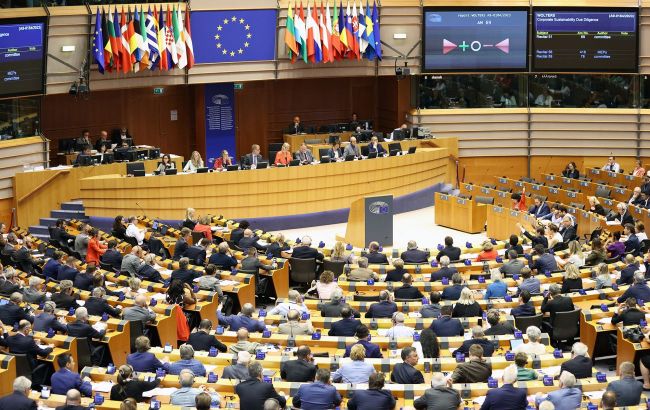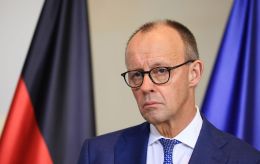European Parliament considers banning Russian media from its networks
 Photo: The European Parliament is considering banning Russian media outlets from its networks (Getty Images)
Photo: The European Parliament is considering banning Russian media outlets from its networks (Getty Images)
The European Parliament is considering blocking access to Russian propaganda websites, such as Sputnik and RT, from its IT infrastructure, Politico reports.
According to the outlet, dozens of sites hosting content from Russian propaganda media remain accessible, despite the EU having imposed sanctions on Russian media across the bloc in 2022.
The center-right group European Conservatives and Reformists, during a meeting of political group leaders on October 15, requested that "Russian propaganda websites under EU sanctions" be made inaccessible within the European Parliament’s IT infrastructure.
This initiative was proposed by Latvian MEP Rihards Kols, who stated that he wants the Parliament to block access to RT, Sputnik, VGTRK, ANO TV Novosti, and other outlets on all Parliament devices and networks.
It is noted that if this step is approved, it would mirror existing restrictions already applied to the social network TikTok over cybersecurity concerns.
The TikTok app was blocked on the European Parliament’s Wi-Fi and devices in March 2023.
Some political group leaders expressed concern that such a ban could set a precedent for blocking sites for reasons unrelated to security and highlighted the technical and legal challenges of implementing such restrictions, according to the meeting notes.
European Parliament President Roberta Metsola is exploring the possibility of implementing the initiative and analyzing measures taken in other EU institutions.
The European Parliament press service said in a statement that the issue will be discussed again at one of the upcoming meetings of political group leaders.
Sanctions against Russian media
Last May, the European Union banned the broadcasting of Voice of Europe, RIA Novosti, Izvestia, and Rossiyskaya Gazeta within the EU for war propaganda. Russia was accused of a systematic campaign to manipulate the media and distort facts.
In the fall of the same year, Telegram blocked the RT channel in Ukraine for violating local laws.
Amid US sanctions targeting Russian propaganda, the short-video platform TikTok also blocked its channels. Accounts for Sputnik and RT International were removed, totaling around 40 channels.
Additionally, Meta blocked Russian propaganda media across its platforms, including Facebook, Instagram, WhatsApp, and Threads.
Telegram also blocked Russian state propaganda channels within the European Union. Channels such as RIA Novosti, NTV, Rossiya 1, Izvestia, and RT are now inaccessible there.
However, Russian media websites remain easily accessible in EU countries, despite being sanctioned and blocked for spreading disinformation about Russia’s war against Ukraine.


